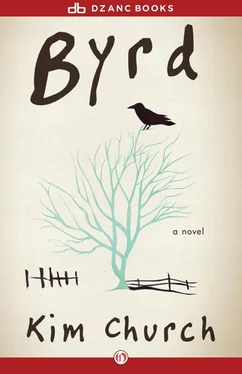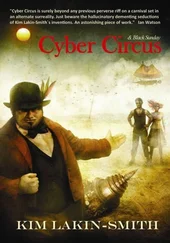She tries not to look at the tube he is holding.
The sun was brighter that day than she had ever seen it. Everything shone. They sat on Roland’s roof and Roland put his arm around her and he was warm, he made her warm, and she wanted to believe, she almost did, that warm could be enough.
“Don’t worry,” he said, and rubbed his hand up and down her back. “It’ll be okay.”
He was kind. He didn’t say anything wrong. The problem wasn’t what he said, but what he left out. Things Addie thought he might say, even if they weren’t true, he didn’t. He didn’t say love . He didn’t say stay . Or keep .
“Keep your feet in the stirrups,” the doctor says, blinking. “Keep your knees apart. Relax, please.”
Finally the nurse comes back with a flannel sheet. She drapes it over Addie, tucks it around her bare arms as if she were the child. “There,” she says. “Better?”
So much they didn’t tell her.
They told her to expect spotting, wear pads, call if the bleeding got heavy. They told her to expect cramping. Take ibuprofen, not aspirin. Use a hot water bottle.
They didn’t tell her her breasts would continue to swell and ache and leak.
They didn’t tell her about the insatiable hunger, the strange cravings. Sharp cheddar cheese. Egg salad sandwiches — plain, no lettuce — on untoasted white bread. Peanut M&Ms. She eats them by the jumbo bag until she is sick.
She keeps gaining weight. More than can be explained by the M&Ms.
They didn’t tell her she would cry over everything, every song on the radio, every line in every book, every movie. She goes to matinees, romantic comedies— Say Anything, See You in the Morning —and comes out of the dark theater with her face puffy and wet, her eyes red. People waiting to buy tickets stare at her, puzzled— are we in the right line?
It’s hormones, she thinks. Hormones and grief. Yes, grief — she has had a loss. That she chose it makes it no less a loss.
They didn’t warn her about the nightmares. Every night, a vivid, lifelike dream in which it falls to her to rescue some helpless creature from sure death. A kitten stalked by lions. A nest of robin’s eggs invaded by a snake. A child on a banana-seat bicycle pedaling into the path of an oncoming train. Impossible situations, beyond her; even in her sleep she knows it. Somehow she always wakes up a split second before the catastrophe, always in a cold sweat.
This, she has always imagined, is how it must feel to be a mother. Terrifying. Numbingly exhausting. She is so tired her whole body hurts but she is afraid to sleep, afraid of what may happen to the next poor dream-creature entrusted to her.
Finally she makes an appointment with her doctor.
“Sounds like you’re pregnant,” says the nurse who takes her blood pressure and charts her symptoms. The nurse has round brown perpetually stunned eyes.
“Impossible,” Addie says. She had not intended to confess her abortion to anyone, even her doctor. Certainly not to this Bambi-eyed nurse.
“Have you had a period since?” the nurse asks.
“No, but—” Even as she protests, she knows the nurse is right. Her body knows.
The test confirms it. The doctor doesn’t try to explain how this could have happened. She refers Addie to an obstetrician; Addie insists on a woman. No more men, not after the pockmarked clinic doctor who botched her abortion. She would like to sue him, but for what? Unnecessary pregnancy? Wrongful life?
The obstetrician is tall and grandmotherly — gray hair, a big rosy face, blue eyes so pale they seem full of light. There are hand-knit booties on the stirrups of her examining table.
“You have an unusual uterus,” she tells Addie. She has a hint of a foreign accent — Scottish? “It tips at an odd angle. You have a blind spot where a baby can hide.”
Which, she says, explains how the baby survived. It wasn’t the clinic doctor’s fault. It wasn’t anyone’s fault. Sometimes abortions (“a- bar -shins”) fail. Just like sometimes birth control fails. Sometimes, against all odds, babies happen.
“Your baby is perfectly fine. See?” On the sonogram screen, the baby lies in profile. The doctor traces the hands, heart, head, facial features.
“It’s smiling,” Addie says.
“Would you like to know the sex?”
“The sex,” Addie says. Somehow this seems unfair — she didn’t know the sex before; why should she get to know now?
“Some do, some don’t,” the doctor says. “There’s no right or wrong.”
Still, she’s tired of surprises. “I guess so,” she says. “Sure.”
The doctor smiles; her teeth are crooked but bright. She points out the baby’s privates in the shape of a small turtle (“tairtle”) — the shell of testicles, the tiny peeking-out penis-head. “A boy,” she says. “A healthy boy.”
“Healthy.”
“Yes. He wasn’t harmed, if that’s your worry. All it did, the procedure, was make a nice clean place for him to settle into. A perfect little nest. You have nothing to fret about.”
Nothing , Addie thinks, except what do I do now?
She tries telling Roland about the baby. Twice. Once in June, but his phone has been disconnected. She calls again in July and a woman answers.
“Hello?” The woman’s voice is guarded, timid, like she’s been waiting for bad news. “Hello?”
“Is Roland there?”
“Can I say who’s calling?”
Addie doesn’t ask the woman’s name; she doesn’t have to. Elle. Elle who forgot her blouse in Roland’s closet. Elle who has come to his rescue — again — with rent money. Elle: betrayed, humiliated, but still hanging on, wondering if she’s done the right thing moving back in.
“Never mind,” Addie says. “Wrong number. My mistake.”
The Guilford County Department of Social Services is in an ugly brick building. The social worker assigned to Addie, a woman named Janet, has plain brown hair, washed-out skin, and tired eyes. They are starting the paperwork for the adoption. Addie is sitting in a wooden chair with wide flat arms, like a witness chair.
“Your full name,” Janet says.
“Adela Claire Lockwood.”
On a file cabinet under Janet’s window is an African violet full of blue blossoms and fat, furry leaves, and next to it, a picture of two children — a boy and a girl — in a white frame. The children are plain like Janet. Obedient-looking, sitting still for the camera. They’ll be home from school by now, Addie imagines — it’s late afternoon. Waiting for their mother to finish up with her last client and come make them dinner. By the time Janet gets home they will have the table set.
“Father’s name?”
“My father?”
“The child’s.”
“Roland.” Addie stops. Is it really necessary to involve him?
“Last name?”
“I don’t know.”
“You don’t remember or you never knew?”
Roland would sign the papers, of course. But does she want to ask him? He will tell people. He’ll tell his friends. Golita. Elle. What if Elle says to him, “No, Roland, let me raise him?” Unlikely. But what if he tells his mother and his mother says, “No, let me raise him?”
Maybe if he’d sent the money for the abortion himself. Or offered to come and be with her, even if he couldn’t afford to. Or called her afterwards, even though she told him not to.
Maybe if there were no Elle.
Maybe if his chart contained any Earth.
“Never knew,” Addie says.
“You’re sure.”
“I’m sure.”
Janet follows procedure. Using the bits and pieces Addie claims to remember (some of them true), she puts together a legal notice and publishes it in a small, cheap Los Angeles County newspaper. The notice says that a child was conceived on or about December 31, 1988 in Venice Beach. That “Roland, no last name given” is the child’s putative father. That the child is to be relinquished for adoption in North Carolina and that “the aforesaid Roland” has the right to claim paternity, which will entitle him to notice of any hearings involving the child. Otherwise his rights will be terminated.
Читать дальше












